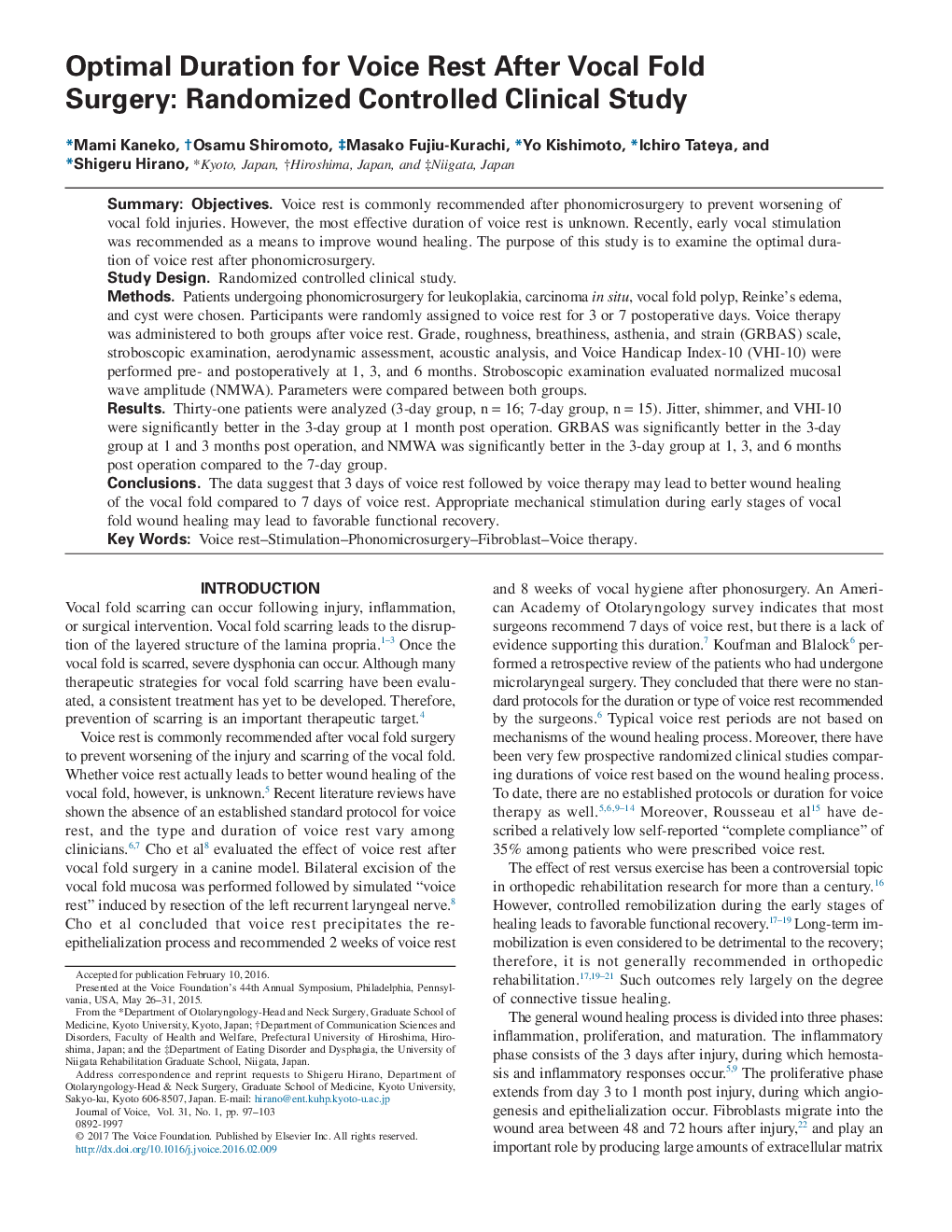| Article ID | Journal | Published Year | Pages | File Type |
|---|---|---|---|---|
| 5124310 | Journal of Voice | 2017 | 7 Pages |
SummaryObjectivesVoice rest is commonly recommended after phonomicrosurgery to prevent worsening of vocal fold injuries. However, the most effective duration of voice rest is unknown. Recently, early vocal stimulation was recommended as a means to improve wound healing. The purpose of this study is to examine the optimal duration of voice rest after phonomicrosurgery.Study DesignRandomized controlled clinical study.MethodsPatients undergoing phonomicrosurgery for leukoplakia, carcinoma in situ, vocal fold polyp, Reinke's edema, and cyst were chosen. Participants were randomly assigned to voice rest for 3 or 7 postoperative days. Voice therapy was administered to both groups after voice rest. Grade, roughness, breathiness, asthenia, and strain (GRBAS) scale, stroboscopic examination, aerodynamic assessment, acoustic analysis, and Voice Handicap Index-10 (VHI-10) were performed pre- and postoperatively at 1, 3, and 6 months. Stroboscopic examination evaluated normalized mucosal wave amplitude (NMWA). Parameters were compared between both groups.ResultsThirty-one patients were analyzed (3-day group, nâ=â16; 7-day group, nâ=â15). Jitter, shimmer, and VHI-10 were significantly better in the 3-day group at 1 month post operation. GRBAS was significantly better in the 3-day group at 1 and 3 months post operation, and NMWA was significantly better in the 3-day group at 1, 3, and 6 months post operation compared to the 7-day group.ConclusionsThe data suggest that 3 days of voice rest followed by voice therapy may lead to better wound healing of the vocal fold compared to 7 days of voice rest. Appropriate mechanical stimulation during early stages of vocal fold wound healing may lead to favorable functional recovery.
